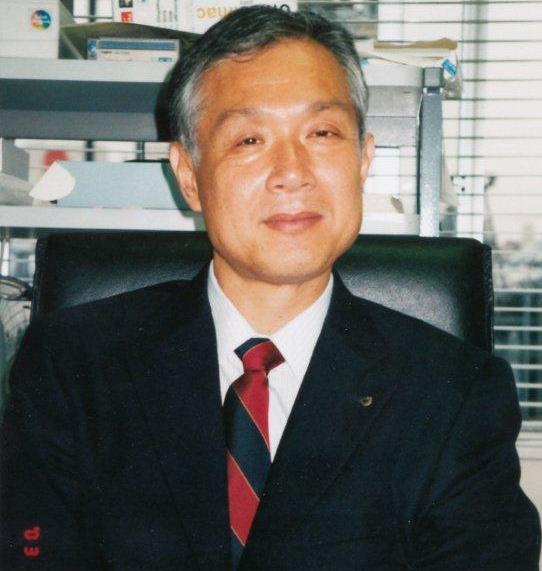A Ray of Light from the Darkness
Yun Xu1, Junjun Jia2*, Qinghua Zhou2, Jing Shu3
1Department of International Healthcare Center, the First Affiliated Hospital, School of Medicine, Zhejiang University, Hangzhou 310003
2Division of Hepatobiliary and Pancreatic Surgery, Department of Surgery, the First Affiliated Hospital, School of Medicine, Zhejiang University, Hangzhou 310003, China
3Division of ICU Department, Zhe Jiang Xinan International Hospital, Jiaxing 314000, China
*Corresponding Author: Junjun Jia, Division of Hepatobiliary and Pancreatic Surgery, Department of Surgery, the First Affiliated Hospital, School of Medicine, Zhejiang University, Hangzhou 310003, China
Received: 05 April 2022; Accepted: 26 April 2022; Published: 29 April 2022
Article Information
Citation: Yun Xu, Junjun Jia, Qinghua Zhou, Jing Shu. A Ray of Light from the Darkness. Archives of Clinical and Medical Case Reports 6 (2022): 331-333
View / Download Pdf Share at FacebookKeywords
<p>Ophthalmology; Hearing; Cataract; Oral communication</p>
Article Details
Case Report
I am an ICU doctor. I still remember my first-time meeting Ma’am Du, an 81-year-old lady, undergoing a full-body evaluation scheduled by our chief of ophthalmology for the upcoming cataract surgery. Ma’am Du was sitting on the bed, scrabbling for something. I reached out my hand to her; she grabbed it and dropped it quickly and kept fumbling the air. Her withered, bony hands were like a couple of antennas, trying to search for something but wind up with nothing.
Our chief of ophthalmology told me that Ma’am Du had lost all her hearing and vision due to her cataract conditions. She had lost most of her capabilities in oral communication. Nobody can get a clue of what she truly wants. The cataract surgery could be local anesthesia, but Ma’am Du was not suited for the procedure as she could not reflect her feelings. Hence, general anesthesia was determined. I was checking Ma’am Du’s heart and lung while she was trying to snatch my stethoscope. She grasped my hand and tried to figure out whom she had touched. She mumbled several words in vernacular, but I could not get any of them. Deaf people can lose their ability to articulate, and even they were comfortable doing so before they became deaf, as they lost feedback from their surroundings.
“She is calling me.” Said Ma’am Du’s daughter. While holding her daughter’s hand, Ma’am Du finally stopped fumbling. “She can sense me. But she cannot figure out what she is eating when I feed her. And she will insist on groping for the answer. She can hang around the room; sometime, I can write down several words for her to read with bright sunshine. She can see them.” Said Ma’am Du’s daughter peacefully. But every doctor in the ward stayed silent.
“I am aware of the risk in the surgery, but it’s much better for her to have even a trivial vision than her current status, which feels like being held in prison for the rest of her life.” Said Ma’am Du’s daughter. It’s a world without any sound and color. Only darkness and silence surround her. No wonder she is always scrabbling; it’s her instinct to use her hands desperately tearing a chink in the darkness.
I checked all the examinations she did. As an 81-year-old woman, suffering chronic disease is a common state in her life. Taking general anesthesia is risky for her, as she has been suffering from depression during the past decades. It is not difficult to imagine; a person lost all her senses, staying in the darkness alone, sensing the time passing by with no clue about day or night.
Our team decided to carry out the surgery, as the endless darkness and silence are suffering. Soon the attending and the chief of ophthalmology agreed to let Du take the surgery, with time a limit of less than one hour. No matter how much risk it was about to take, it was worth it. Moreover, she needed to stay in the ICU after the surgery, as her veins had lost their elasticity and resulted in unstable blood pressure.
One week after the surgery, we met Du’s daughter while taking her mother in the wheelchair at the corridor. Du looked a little bit strange in the wheelchair. With a doctor’s instinct, I found Du’s hands were no longer scrabbling. All of a sudden, Du stared at me with her newly recovered right eye and smiled. Skinny face, with all the wrinkles, bloomed. Du’s daughter explained that Du would smile at every person wearing a white overall. That is the most touching expression in the world.
Comments
When I heard Du’s story, I did not think the doctors would allow her to take the surgery. But luckily, the story has a happy ending. The readers would be right on the doctor’s lawsuit if Du suffered severe complications during the surgery. They were going to lose. Doctors knew about it in the first place. Even though the surgery was performed with local anesthesia, Du was still risky to die in the surgery. If the story’s title included this sensitive content, the readers were going to attack you with moral criticizing. The chief of ophthalmology called me to attend the group consultation was asking me to share the responsibility with him. A person’s life quality was priceless. The validity of doing the surgery was not worth discussing in the scenario. Du’s life was with endless darkness and silence, and I didn’t think anybody wanted to experience what she was experiencing. Once you felt the desperation she was experiencing, you would think the surgery was worthy and became fearless.
The decision was not easy to make. It was tough to evaluate if the patient’s body condition was able to undertake the surgery, and the doctors’ courage of risking their career and reputation on the surgery. It was like chasing a ray of light from the darkness. It was just a public welfare; the doctors would not achieve much in the surgery. In this world, doctors are selfless, betting all their reputations on an uncertain medical case. But nicely, Du’s smile and all patients’ smiles are right here for the white soldiers.
Funding
This study was supported by grants from general scientific research project of Zhejiang Provincial Department of Education (Y202146219), the Zhejiang Natural Science Foundation (LQ20H030005) and the Zhejiang Health Technology Project (2020KY126).


 Impact Factor: * 5.3
Impact Factor: * 5.3 Acceptance Rate: 75.63%
Acceptance Rate: 75.63%  Time to first decision: 10.4 days
Time to first decision: 10.4 days  Time from article received to acceptance: 2-3 weeks
Time from article received to acceptance: 2-3 weeks 
